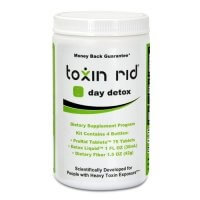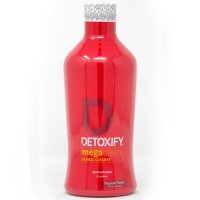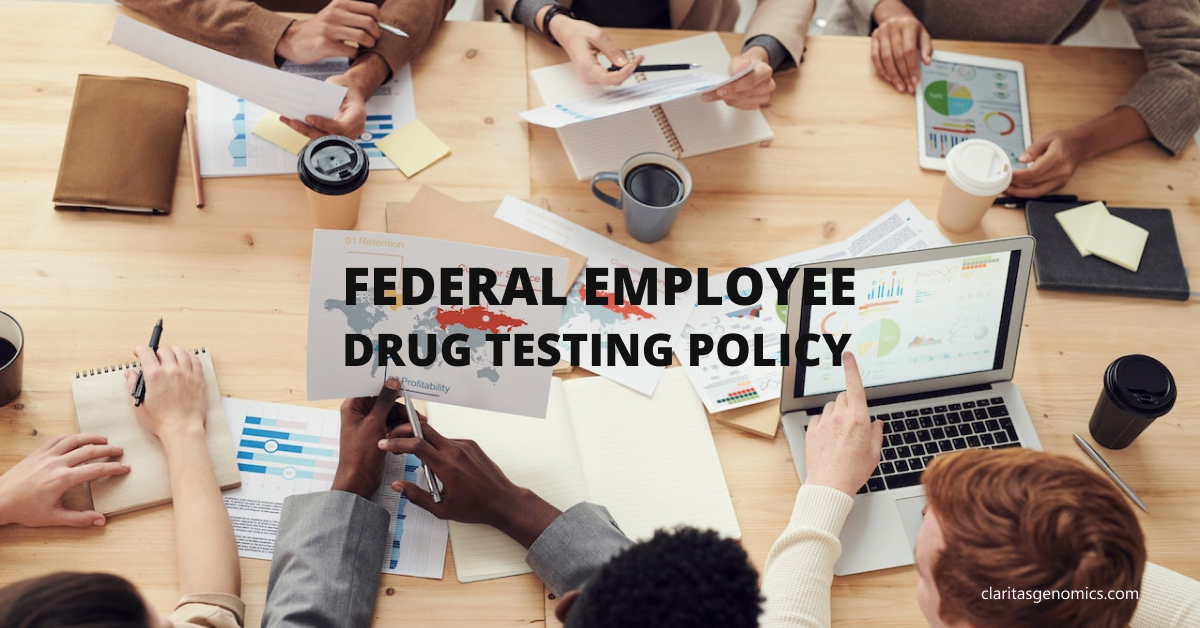When it comes to hiring for federal government positions, a thorough screening, including background checks and comprehensive drug testing, is essential. The specifics of the Federal Employee Drug Testing Policy may vary depending on the jurisdiction and job type. In navigating this policy landscape, individuals may consider strategies such as using detox products like Toxin Rid pills or Detoxify Mega Clean to help meet the required standards.
In the United States, federal government employees are obligated to participate in drug testing as a key component of the Drug-Free Federal Workplace Program. Established back in 1986 under Executive Order 12564, this program mandates that all executive branch agencies maintain an operational drug-free workplace program.
However, the landscape surrounding drug policies isn’t solely governed by regulations. Over the past decade, there has been a noteworthy transformation in public perceptions regarding marijuana. What was previously linked to the underground drug trade has evolved into a dialogue all about methadone and its potential medical benefits. This profound shift has played a pivotal role in motivating efforts to legalize cannabis in 38 states and Washington, DC.
This article will explore the Federal Employee Drug Testing Policy, exploring its intricacies and the broader context in which it exists.
 |
Our #1 Choice
Toxin Rid |
|
|
 |
Mega Clean + PreCleanse Pills |
|
What is a Federal Civilian Employee?
You might find it quite interesting that a considerable portion of the federal government’s workforce isn’t composed of military personnel. Instead, this dedicated group, often known as federal civilian employees, holds pivotal positions across various government departments and agencies.
Their compensation follows the guidelines outlined in the General Schedule (found in section 5332 of Title 5 of the federal government), meaning their pay and raises are primarily determined by the president and Congress rather than based on merit or commissions.
In terms of their employment benefits, federal civilian employees receive comprehensive packages established by the government. If you’re employed by the federal government, getting paid, and enjoying the perks but not serving in the armed forces, you’re likely a federal civilian employee.
While navigating the intricacies of federal employment, it’s noteworthy that some individuals explore methods like Toxin Rid pills or Detoxify Mega Clean to address concerns related to potential substance screenings, a consideration that extends beyond the usual aspects of compensation and benefits for federal civilian employees.

What is a Federal Government Pre-Employment Drug Test?
A Federal Government Pre-Employment Drug Test is a necessary step in the job application process for federal positions. Its primary goal is to determine whether applicants are clear of specific substances, which encompass controlled substances, prescription medications, illicit drugs, and alcohol. This examination holds significant importance within the hiring procedures of numerous federal agencies, as it fulfills various crucial objectives:
- Safety and Accountability: Ensures a safe and accountable work environment by identifying individuals who may pose a risk due to substance use.
- Policy Compliance: Ensures compliance with federal guidelines and regulations, including the Mandatory Guidelines for Federal Workplace Drug Testing Programs (MGs).
- Fair Hiring Practices: Ensures fair and consistent hiring practices, as all applicants are subject to the same drug testing standards.
In preparation for a Federal Government Pre-Employment Drug Test, individuals may explore detoxification options such as Toxin Rid pills or Detoxify Mega Clean, to help them pass the test and not fall on their face in the eyes of the federal government.
Federal vs. State Perspective on Marijuana
In the past decade, the conversation around marijuana has shifted dramatically. While many states have embraced its use for various purposes, the federal viewpoint remains somewhat different.
Federal Classification: Federal drug testing laws categorize marijuana as a Schedule I substance, placing it in the same category as drugs like ecstasy, heroin, and LSD. This classification suggests a perceived high risk of dependency and no acknowledged medical benefits.
State Embrace: State regulations present a contrasting picture. At present, approximately 37 states permit medical marijuana usage. Thirteen states, along with one territory, have made cannabis possession less strict by decriminalizing it. Plus, in eighteen states, two territories, and even the District of Columbia, you can now legally enjoy recreational marijuana.
Additionally, eleven states have given the nod for using low THC and high CBD products for medical reasons.
CBD Confusion: The federal stance on CBD, a component of cannabis, remains unclear. Although the 2018 Farm Bill uninvolved hemp from Schedule I, it didn’t clarify CBD usage. This has led to confusion in the market, as the FDA still maintains that marketing CBD as food or dietary supplements is unlawful.
CBD and Drug Tests: It’s vital to note that CBD products may comprise trace amounts of THC, which could accumulate in the body and potentially result in positive drug tests.
While states have made significant strides in marijuana acceptance, a divide persists between state and federal perspectives, creating complexities in the legal landscape and consumer understanding.
Implications for Federal Employees
The federal drug-free policy sets clear rules for all federal employees, contractors, and grantees:
Steer Clear of Illegal Drugs: It’s expected that federal employees, no matter their role, stay away from illegal drugs, whether they’re at work or in their personal lives. However, if it does happen that they have ingested a drug, they should cleanse themselves of it as soon as possible. To do this, it is best to use special detox products, including Toxin Rid pills or Detoxify Mega Clean.
Reporting Convictions: If any of our employees encounter legal issues related to drug convictions, we kindly request that they promptly inform their supervisor.
Rehabilitation When Needed: In certain situations, our agency may recommend that employees participate in a drug rehabilitation program to offer them the support they might need.
The drug-free workplace policy of Federal agencies includes:
- A clear statement prohibiting the use of illegal drugs, both on and off the job.
- Details about the agency’s drug testing program.
- Consequences for employees who break the drug-free workplace policy.
Mandatory Drug Testing Process for Federal Job Applicants
The mandatory guidelines are issued by the Substance Abuse and Mental Health Services Administration (SAMHSA). Here is a summary of mandatory guidelines for federal workplace drug testing programs:
- Conditional Job Offer: After receiving a job offer, applicants are told that their employment depends on passing a drug test.
- Policies and Procedures Explanation: Applicants get written information about the agency’s drug testing rules. This document explains what to expect during the testing.
- Scheduling and Providing Samples: Applicants set up a drug test appointment at an approved lab, often chosen from a list provided by the agency. They give a sample, usually urine, oral fluid, or sometimes hair.
- Laboratory Testing: The laboratories check the sample for specific drugs listed in the guidelines and share the results with the agency. Ensuring a fair and standardized specimen collection site for each individual is vital for maintaining integrity and accuracy in the drug testing process.
- MRO Review: An agency-appointed Medical Review Officer (MRO) checks the results. They confirm drug presence and ensure there are no legitimate medical reasons for positive results.
- Decision Time: The agency decides whether to finalize the job offer or withdraw based on the drug test results.
Also, applicants have rights, including reviewing their results, requesting an MRO review, challenging results, and sometimes getting a re-test.
 |
Our #1 Choice
Toxin Rid |
|
|
 |
Mega Clean + PreCleanse Pills |
|
DOT vs. Non-DOT Drug Tests: What to Expect?
When it comes to federal employee drug testing, two common types stand out: DOT and non-DOT drug tests. These tests are vital for ensuring safety and adherence to regulations in specific professions. Here’s a quick comparison:
| Aspect | DOT Drug Test | Non-DOT Drug Test |
| Common Samples | Urine specimens | Urine, saliva, or hair (varies by employer) |
| Applicable Professions | Safety-sensitive roles under DOT jurisdiction | Industries not regulated by DOT, determined by individual employers |
| Checked Substances | Alcohol, opiates, marijuana, cocaine, PCP, amphetamines, methamphetamines. | Barbiturates, methadone, benzodiazepines, propoxyphene |
| When Required | After accidents, random testing, return to work, pre-employment, reasonable suspicion, and follow-up tests. | Determined by individual employer policies |
| Cutoff Levels (Common for 5-Panel Test) | Marijuana: 50 ng/mL, Cocaine: 150 ng/mL, Opiates: 2000 ng/mL, Amphetamines/methamphetamines: 500 ng/mL, PCP: 25 ng/mL |
For federal employees, DOT drug tests are a strict requirement. These tests focus on safety-sensitive positions within the DOT’s jurisdiction and aim to safeguard public safety.
On the other hand, non-DOT drug tests are determined by individual employers in industries not regulated by the DOT. The employer has the flexibility to choose the type of testing (urine, saliva, hair) and testing policies based on their specific needs.
What Are the Consequences If I Fail in the Drug Test?
- Job Denial:Failing a drug test can cost you a job opportunity. Employers are quite cautious about hiring individuals who test positive for drugs. Some individuals resort to detox products like Toxin Rid pills or Detoxify Mega Clean to help eliminate traces of substances from their system in an attempt to pass drug tests.
- Job Termination: You could lose your job if you’re already employed and fail a random drug test. Employers typically have the right to take this action based on the employment agreement, though some may offer a second chance.
- Legal Trouble: Drug testing is common and mandatory for individuals on probation. Positive drug tests can lead to legal consequences and even incarceration.
- Loss of Benefits: In certain states, failing a drug test can lead to the denial of benefits like unemployment, disability, or worker’s compensation. These rules vary between states.
Impact of State-Level Legalization
It’s worth noting that with the legalization of marijuana in some states, there has been an uptick in cases of individuals failing drug tests. Even though it may be legal at the state level, many employers maintain a zero-tolerance policy, which can lead to these consequences.
Does USPS Drug Test After Hire?
Curious about “Does USPS drug test pre-employment?”
The simple answer is: Yes, USPS does perform drug tests on its employees, mainly focusing on new hires during the pre-employment phase. Their goal is to ensure that mail carriers can safely and coherently carry out their duties. However, recent years have seen a more relaxed approach to enforcing this policy.
Many new hires in the past three years have not been required to undergo pre-employment drug tests. However, if you’re wondering “Does USPS do random drug tests?” here’s a simple answer: random drug tests are rare for current and former USPS employees.
These drug testing policies aim to uphold safety, including pre-employment screenings for new hires and the possibility of random tests during employment. Suspicion of drug use or involvement in a workplace accident may also trigger testing.
Typically, USPS drug tests involve a urine sample screening for various drugs. USPS also has a “Last Chance Agreement” for employees who don’t pass a drug or alcohol test, allowing them to complete a rehabilitation program and another drug test before returning to duty.
FBI Employment Drug Policy
To become an FBI agent, applicants must meet specific criteria, and adhering to the FBI’s employment drug policy is a must. The FBI takes maintaining a drug-free workplace seriously to ensure public trust and the success of its missions.
Here’s a breakdown of the key points of the FBI Employment Drug Policy:
- Illegal Drug Usage: FBI applicants must not use illegal drugs or misuse legal ones for illicit purposes during the application process. This is vital for maintaining public integrity.
- Marijuana Usage: Candidates should not have used marijuana or cannabis, whether natural or synthetic, in the year before applying. However, usage before the age of 18 is not disqualifying, and applicants are assessed using a holistic approach.
- Other Illegal Drugs: Any use of illegal drugs (excluding marijuana) within the ten years preceding the application date is disqualifying. Involvement in selling, distributing, manufacturing, or transporting illegal drugs is also prohibited.
- Prescription Drugs and Legally Obtainable Substances: Misusing prescription drugs within one year or abuse of prescription drugs, over-the-counter substances, or legally obtained substances within three years before applying leads to disqualification. Anabolic steroid use without a prescription within ten years before applying is also prohibited.
What is interesting, is that applicants sometimes want to cheat the test, and use some products for that. Toxin Rid pills may be considered by individuals aiming to become FBI agents, as adherence to the FBI’s strict employment drug policy is crucial. Detoxify Mega Clean is another option some may explore to meet the agency’s stringent requirements for a drug-free workplace.
Court Drug Testing Policy
In courts, drug testing is a common practice. It begins with pre-employment drug testing to ensure that new hires are not drug users, which could compromise safety and security. Some positions, especially those with access to controlled substances, may require random drug testing. Personnel who test positive for drugs can face disciplinary measures, including termination. However, many court systems offer employee assistance programs (EAPs) to help those struggling with substance abuse.
Drug courts and other court-supervised treatment programs often mandate regular drug testing for participants. This ensures they remain drug-free and on the path to recovery.
Maintaining a strict drug testing policy is crucial to upholding trust and integrity within the legal system. It helps ensure a safe and fair environment for both employees and participants.
Government Jobs That Don’t Drug Test
Certain government positions tend to bypass drug testing, especially those that are less safety-sensitive and don’t involve heavy machinery or driving. These roles include:
- Clerks
- Customer service representatives
- Educators
- Human resources professionals
- Librarians
- Nurses
- Social workers
- Teachers
However, drug testing policies can fluctuate, so it’s wise to consult the specific agency you’re interested in for their guidelines.
Exceptions to Drug Testing Policies
In some cases, government agencies may make exceptions to their drug testing policies. This can occur for positions in non-safety-sensitive agencies, roles with specific medical requirements, or positions related to drug research or rehabilitation.
Instances Where Drug Testing Might Not Be Required
Medical Conditions: If an employee has a medical sickness protected by the Americans with Disabilities Act and takes medication that could yield a positive drug test, reasonable accommodations must be provided.
Safety-Sensitive Positions: Drug testing is more likely for employees operating heavy machinery or driving vehicles due to increased safety risks.
Resources for Those Struggling with Substance Use
The Substance Abuse and Mental Health Helpline ((888) 804-0917) is a confidential, free, 24/7, 365-day-a-year service that provides information and support to people struggling with substance use. The helpline can also help people find treatment programs in their area.
 |
Our #1 Choice
Toxin Rid |
|
|
 |
Mega Clean + PreCleanse Pills |
|
Conclusion
Federal employee drug testing policies are essential for maintaining safety and trust in federal civilian employment. Applicants and employees face mandatory drug tests, with consequences for positive results, including job denial and legal issues. State-level marijuana legalization adds complexity as federal laws differ.
Some government positions, like clerks and teachers, may skip drug tests, but policies vary. Exceptions can occur for non-safety-sensitive roles or those with medical needs. Understanding these rules is crucial.
These policies ensure a drug-free federal workplace, upholding integrity and public trust. For those with substance use concerns, support and resources are available for recovery.


